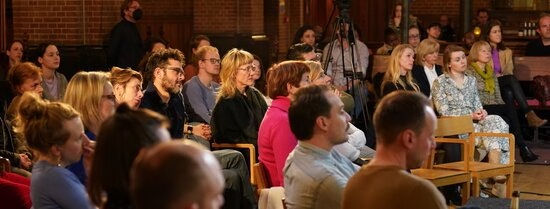How can greening in the Netherlands cause pollution elsewhere in the world? In an interview at Studio Erasmus, researcher Daphina Misiedjan of the International Institute of Social Studies discusses what climate inequality is, where it comes from and how we can ensure that the gap does not become irreparably large.
The cultural socioeconomic elite
Climate inequality looks at how different people are affected by climate change. According to Misiedjan, poorer people and countries are hit hardest by climate change: 'For some countries, it's already a daily crisis and not necessarily a vision for the future. Some groups also find it easier than others to find the way to subsidies for green roofs, heat pumps and electric cars. We also see more and more families with children getting disconnected from the water. If you don't pay your bill, the water tap can be turned off. Also in the Netherlands.'
Mock solutions
Climate inequality does not only exist in the Netherlands. It's a worldwide problem. Misiedjan thinks it's a shame that in the Netherlands climate is looked at as an isolated issue. Goals such as reducing CO2 emissions are currently being met in the Netherlands. Measures include the use of a large number of solar panels. However, this does not take into account the emissions produced by the production of the panels. From an environmental point of view, we sometimes may be going backwards.
Misiedjan is pessimistic about the future. 'There are quite a few deadlines coming up: 2030, 2050 and I don't know whether we're going to make it. Besides, once that snowball starts rolling, you can't stop it. We have seen for ourselves what happened with the floods in Limburg. There are many things we should have done already. We have to keep a closer eye on the bigger picture when it comes to the climate.'
Watch the interview on our YouTube channel

- Researcher
- Related content

